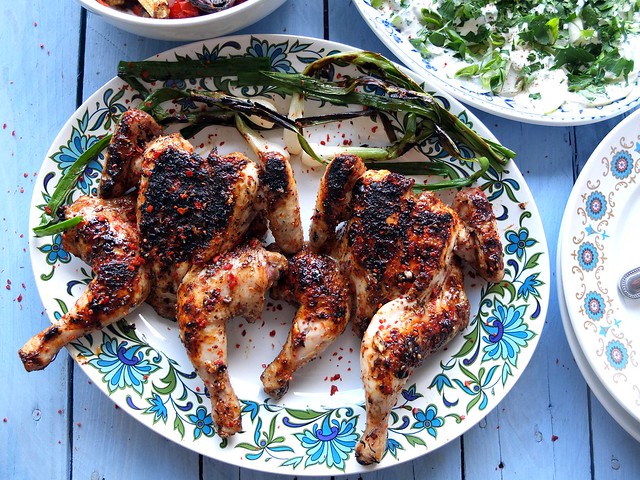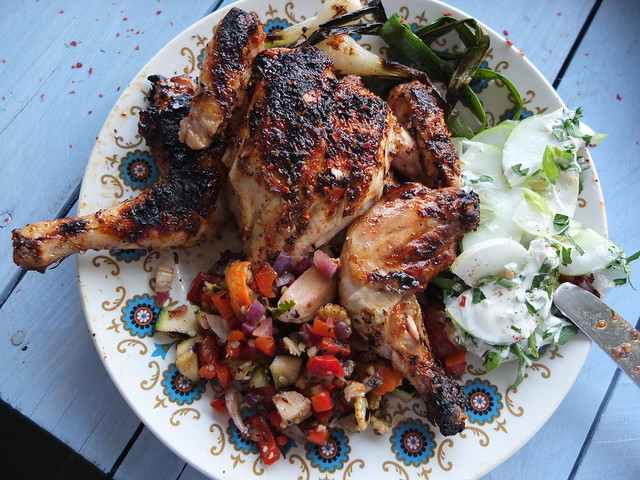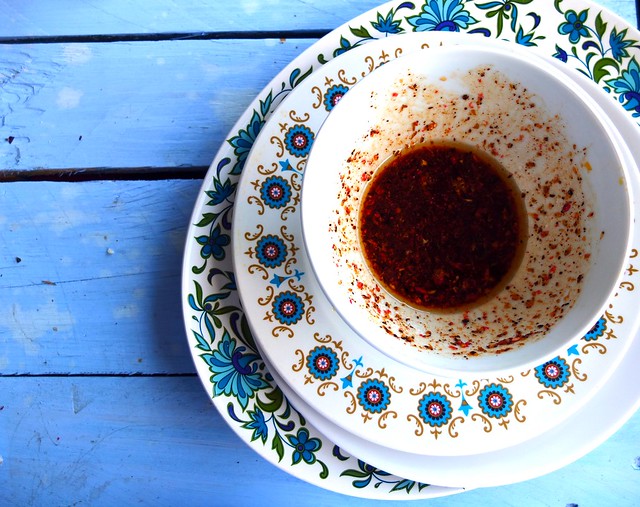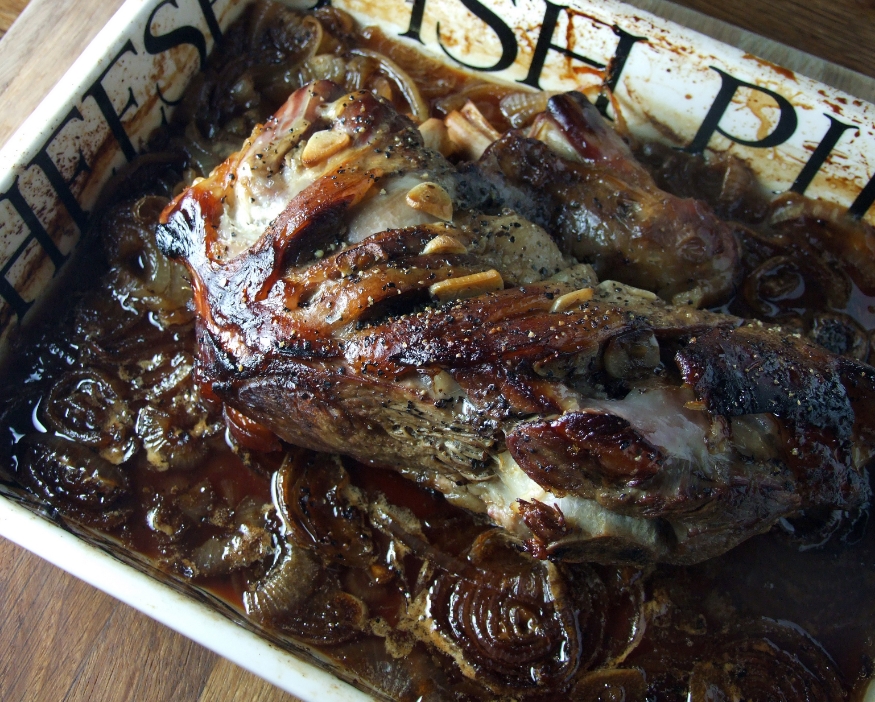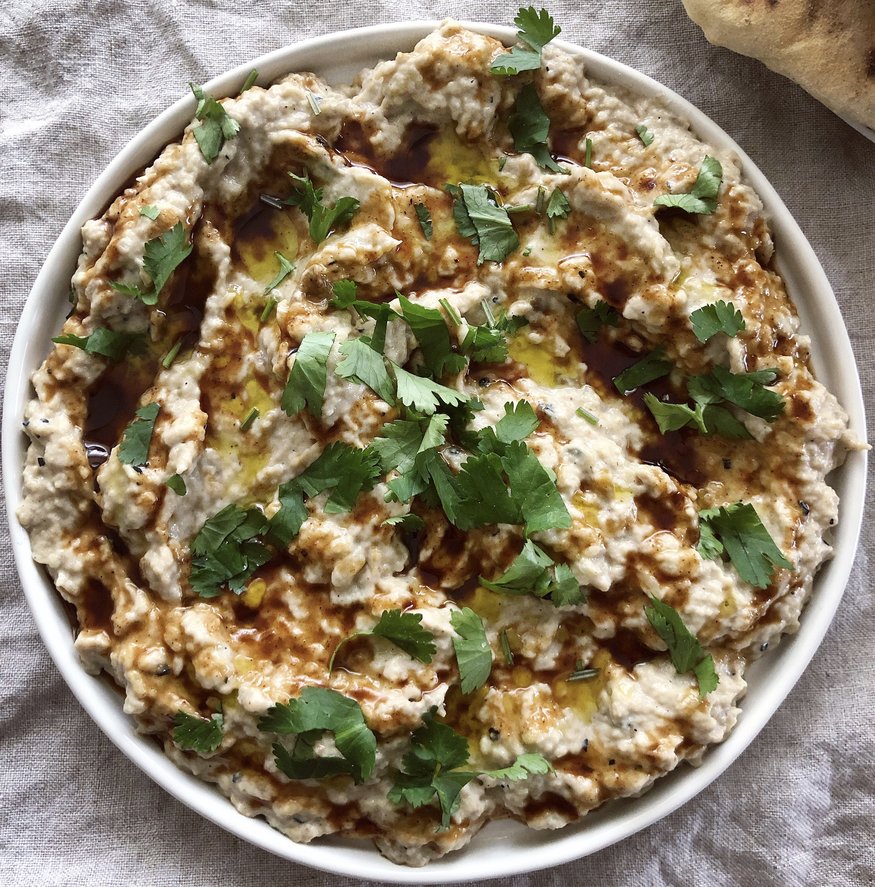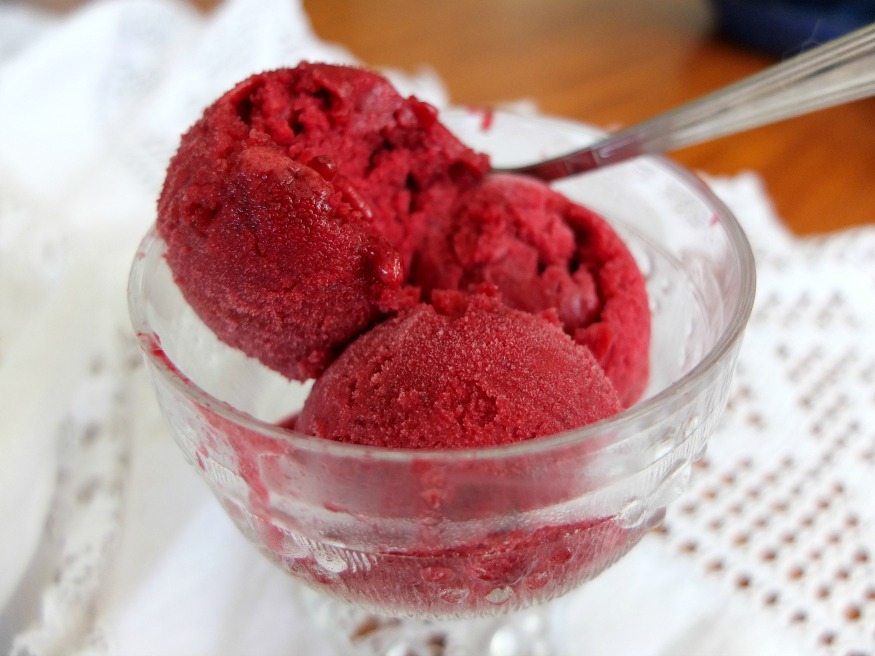
The cherries have started creeping into shops and will be around now until the end of July. While I think they’re best, generally, eaten as they come (who can resist that snap of taut skin?) there are ways to enhance their flavour when using them in desserts, to maximise cherry flavour.
Roasting is one such method and I think it works particularly well for ice creams and sorbets. I was reading this recipe and loved the idea of roasting the cherries with the sugar in the oven first, which also sidesteps making a separate simple syrup (that’s just sugar dissolved in water, FYI). What you end up with, then, is a load of collapsed fruit bubbling in sweet juice, ready for blending and churning.
It’s always tempting to romanticise inspiration for recipes but I’d feel disingenuous doing that here. Basically, I was pitting the cherries* with no particular plan for them, when my gaze fell upon a bottle of pomegranate molasses sitting right there on the kitchen counter. Ta da!
I’m still giving myself a pat on the back though because this is a stunner: it has a deep cherry flavour (thanks, roasting) and a whisper of perfumed pom molasses which brings a Turkish or Iranian vibe. In fact, this would be the perfect end to a meal of kebabs, flatbreads and bowl of sloppy tomato salsa which has warmed itself slowly in the afternoon sun.
*If you don’t have a cherry pitter, I strongly recommend you buy one. They can also be used to stone olives.
Roasted Cherry and Pomegranate Molasses Sorbet Recipe
1 kg cherries, stalks removed and pitted
200g caster sugar
2 tablespoons pomegranate molasses
1 tablespoon lemon juice
Large pinch salt
200ml water
Preheat the oven to 200C
Put the cherries, sugar and salt in a roasting tray – you want them to be snug and not spread out (a couple of layers of cherries works well). Mix well to coat.
Roast for 30-45 minutes until they are bubbling and the juice around them is thick. Add the water and return to the oven for another 10 minutes.
Allow to cool to room temperature then blend (in a food processor) with the lemon juice and pomegranate molasses. Taste the mixture and add more lemon juice if you like. It’s best to make it slightly too sweet as the sugar will be dulled slightly by the freezing process.
Pass it through a sieve (no really, do) making sure you really press and scrape all the fruit skins through the mesh (and remember to scrape the bottom of the sieve, too). Put the sieved mixture into the fridge and leave overnight or for at least a few hours, as it needs to be very cold.
Churn in an ice cream maker. This would also be great with vanilla ice cream, or mixed into vanilla ice cream as a ripple. If you don’t have an ice cream maker you can do the whole, freezing, vigorously whisking, freezing, whisking and so on but I really recommend getting on if you think you might make a few ice creams/sorbets. This is the model I use – great because it doesn’t have very small parts you can easily lose. I’ve had it for around 5 years now with no probs.
